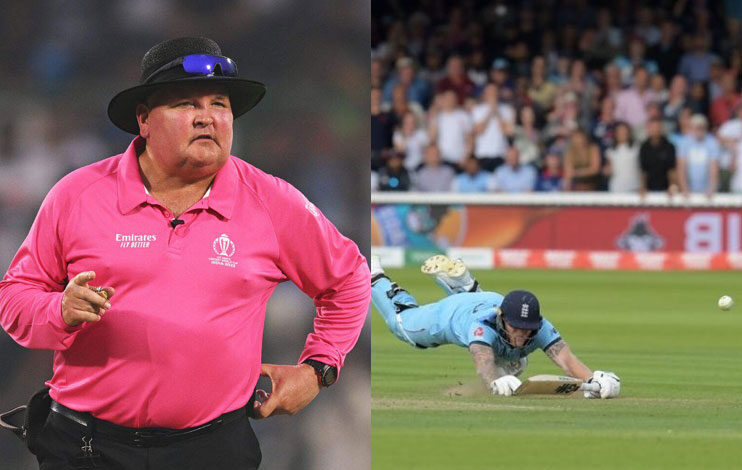Umpire Marais Erasmus Opens Up About Error in 2019 World Cup Final

South Africa-based umpire Marais Erasmus, a key figure in the 2019 World Cup final, has shed light on the crucial error made by officials during the thrilling clash between England and New Zealand. The final, remembered for its intense drama, saw England clinch their maiden World Cup title on boundary count after a tied 50-over contest and a subsequent Super Over.
The pivotal moment came in the 50th over of England’s run chase when Martin Guptill’s throw deflected off diving Ben Stokes’ bat and raced to the boundary. This incident led to England being awarded six runs, a decision that sparked debates and controversy in the cricketing world.
Erasmus revealed that the umpires, including him and Kumar Dharmasena, acknowledged the error the following morning. He admitted that they should have awarded England five runs instead of six, as the batsmen hadn’t crossed at the moment of the throw.
Reflecting on the incident, Erasmus explained that in the heat of the moment on the field, they communicated ‘six’ to each other without realizing that the batters hadn’t completed the necessary run. This oversight, he admitted, was a significant error in judgment.
The error in the World Cup final stemmed from a misinterpretation of the MCC rulebook’s Law 19.8, which governs overthrows and fielding actions resulting in boundaries. The acknowledgment of this mistake by Erasmus highlights the challenges faced by officials in high-pressure situations.
Despite the controversy surrounding the final’s outcome, England’s victory stood, marking a historic moment in their cricketing history. However, the revelation by Erasmus adds a new dimension to the debate over the fairness and accuracy of umpiring decisions in critical matches.
As cricket continues to evolve, the incident serves as a reminder of the importance of clarity and precision in umpiring, especially during high-stakes encounters like the World Cup final. The acknowledgment of errors and efforts to rectify them contribute to the integrity and credibility of the sport.





